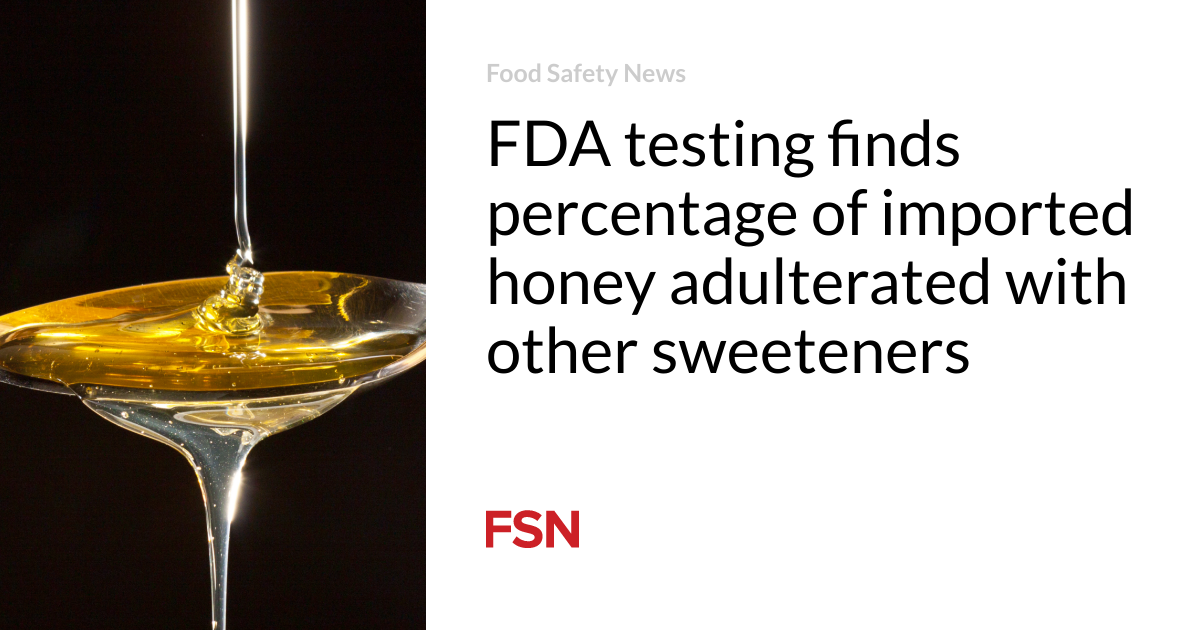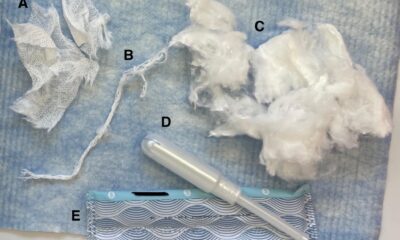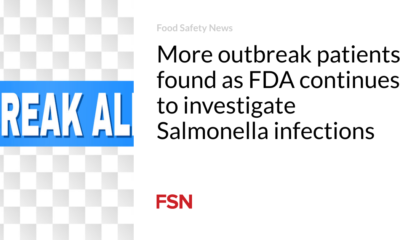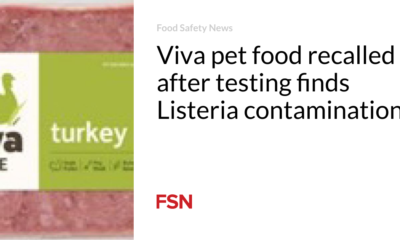Food
FDA testing shows percentage of imported honey adulterated with other sweeteners

The FDA has released a report on an investigation into imported honey and its intentional adulteration for economic gain.
The Food and Drug Administration report includes information on 107 samples from 25 countries. The FDA collected the samples in import status, which refers to products collected at ports of entry or other locations where they are held before being released into domestic commerce.
The agency tested retail and bulk samples in 2022 and 2023. Retail samples consisted of individual jars or other containers. Samples from bulk shipments were typically collected from barrels or barrels. All samples were labeled as ‘honey’.
The FDA conducted a similar sampling and testing program in 2021 and 2022. Those tests showed that 14 percent of the samples had been deliberately adulterated.
Adulteration of honey typically involves the addition of undeclared sweeteners that are less expensive than honey, such as syrups derived from sugar cane, corn, rice or sugar beets. Such adulteration artificially increases the value of the honey by increasing its weight and can cause problems for people with food allergies.
“Of 107 import samples collected and tested, FDA determined that 3 import samples, 3 percent, were in violation. Although the number of violation samples represents a slight decrease from the 2021-2022 import honey assignment, the two assignments were not intended for statistical comparison,” the FDA report said.
Honey from the Dominican Republic, Mexico and Yemen was found to be adulterated.
When the FDA determined that a sample was illegitimate, the agency took follow-up action to prevent further distribution of that violative honey shipment into the U.S. market. Any infringing samples resulted in denial of entry for that shipment to the US
In addition, the FDA has expanded screening and surveillance sampling or placed the associated company and product on Import Alert (IA) 99-47. Products listed on the Import warning are subject to ‘detention without physical examination’. In order for these products to be authorized in the US, the company must provide evidence to the FDA to overcome the appearance of a violation, such as test results from a third-party laboratory verifying that the product does not contain added sweeteners.
“The results reaffirm the need for the agency to continue testing honey for economically motivated adulteration to ensure that consumers are not misled and that they receive a fair price for their purchase,” the FDA report said.













